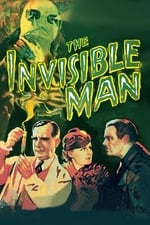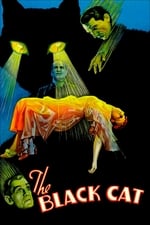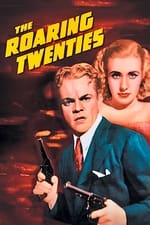Informacje osobiste
Znana/y z Dźwięk
Znana/y z czołówek 203
Płeć Mężczyzna
Data urodzenia 1 maja 1901
Data śmierci 11 lutego 1985 (83 years old)
Miejsce urodzenia Milwaukee, Wisconsin, USA
Znany także jako
- Heinz Eric Roemheld
- H. Roemfeld
- H. Roemheld
- Rox Rommell
Ocena treści
63
Tak blisko, a tak daleko...
Zaloguj się, aby zgłosić problem
Biografia
From Wikipedia, the free encyclopedia
Heinz Roemheld (Milwaukee, May 1, 1901 – Huntington Beach, California, February 11, 1985) was an American composer.
Born Heinz Eric Roemheld in Milwaukee, Wisconsin, he was one of four children of German immigrant Heinrich Roemheld and his wife Fanny Rauterberg Roemheld. Heinrich was a pharmacist, but all the members of the family were musical. Heinz's brother Edgar (1898-1964) became a conductor, while sister Irmgard (1904-1995) became a well-known Milwaukee music teacher and radio broadcaster.
Roemheld was a child prodigy who began playing the piano at the age of 4. He graduated from the Milwaukee College of Music at 19, and performed in theaters to earn money to study piano in Europe. In 1920, he went to Berlin, where he studied with Hugo Kaun, Ferruccio Busoni, and Egon Petri. While he was there, he appeared in concert with the Berlin Philharmonic.
When he returned to America, Roemheld became involved in music for silent films, both as a pianist and as a conductor. In 1925, he was sent back to Berlin as head of Universal Pictures theaters there, but had to leave in 1929 due to the rise of Nazism.
Back in America, Roemheld moved to Los Angeles and became a prominent cinema composer. He scored some scenes in Gone with the Wind, including the burning of Atlanta, although he was not credited on-screen. In 1942, he won the Academy Award for Best Original Music Score for Yankee Doodle Dandy. Among the more than 400 other films for which he composed music were Gentleman Jim, The Lady From Shanghai, The Invisible Man, and Shine On, Harvest Moon.
After World War II, Roemheld once again returned to Germany to become Chief of the Film, Theatre, and Music Section of the Information Central Division of The American Armies in Europe. He continued writing for several major film studios until the late 1950s, and after briefly working in television, he retired in 1964 to concentrate on his classical composition. He is best known for the song "Ruby" from the movie Ruby Gentry (1952), which has become a standard.
He married a former Miss Milwaukee, Emeline Defnet (1901-1980), from whom he was later divorced. They had two daughters, Mary Lou Roemheld, who was married for years to game show host Jack Narz, and Ann, who married game show host Bill Cullen.
Roemheld died on February 11, 1985, at a convalescent home in Huntington Beach after contracting pneumonia three weeks earlier.
From Wikipedia, the free encyclopedia
Heinz Roemheld (Milwaukee, May 1, 1901 – Huntington Beach, California, February 11, 1985) was an American composer.
Born Heinz Eric Roemheld in Milwaukee, Wisconsin, he was one of four children of German immigrant Heinrich Roemheld and his wife Fanny Rauterberg Roemheld. Heinrich was a pharmacist, but all the members of the family were musical. Heinz's brother Edgar (1898-1964) became a conductor, while sister Irmgard (1904-1995) became a well-known Milwaukee music teacher and radio broadcaster.
Roemheld was a child prodigy who began playing the piano at the age of 4. He graduated from the Milwaukee College of Music at 19, and performed in theaters to earn money to study piano in Europe. In 1920, he went to Berlin, where he studied with Hugo Kaun, Ferruccio Busoni, and Egon Petri. While he was there, he appeared in concert with the Berlin Philharmonic.
When he returned to America, Roemheld became involved in music for silent films, both as a pianist and as a conductor. In 1925, he was sent back to Berlin as head of Universal Pictures theaters there, but had to leave in 1929 due to the rise of Nazism.
Back in America, Roemheld moved to Los Angeles and became a prominent cinema composer. He scored some scenes in Gone with the Wind, including the burning of Atlanta, although he was not credited on-screen. In 1942, he won the Academy Award for Best Original Music Score for Yankee Doodle Dandy. Among the more than 400 other films for which he composed music were Gentleman Jim, The Lady From Shanghai, The Invisible Man, and Shine On, Harvest Moon.
After World War II, Roemheld once again returned to Germany to become Chief of the Film, Theatre, and Music Section of the Information Central Division of The American Armies in Europe. He continued writing for several major film studios until the late 1950s, and after briefly working in television, he retired in 1964 to concentrate on his classical composition. He is best known for the song "Ruby" from the movie Ruby Gentry (1952), which has become a standard.
He married a former Miss Milwaukee, Emeline Defnet (1901-1980), from whom he was later divorced. They had two daughters, Mary Lou Roemheld, who was married for years to game show host Jack Narz, and Ann, who married game show host Bill Cullen.
Roemheld died on February 11, 1985, at a convalescent home in Huntington Beach after contracting pneumonia three weeks earlier.
Znana/y z
Dźwięk
|
|||||||||||||||||||||||||||||||||||||||||||||||||||||||||||||||||||||||||||||||||||||||||||||||||||||||||
|
|||||||||||||||||||||||||||||||||||||||||||||||||||||||||||||||||||||||||||||||||||||||||||||||||||||||||
|
|||||||||||||||||||||||||||||||||||||||||||||||||||||||||||||||||||||||||||||||||||||||||||||||||||||||||
|
|||||||||||||||||||||||||||||||||||||||||||||||||||||||||||||||||||||||||||||||||||||||||||||||||||||||||
|
|||||||||||||||||||||||||||||||||||||||||||||||||||||||||||||||||||||||||||||||||||||||||||||||||||||||||
|
|||||||||||||||||||||||||||||||||||||||||||||||||||||||||||||||||||||||||||||||||||||||||||||||||||||||||
|
|||||||||||||||||||||||||||||||||||||||||||||||||||||||||||||||||||||||||||||||||||||||||||||||||||||||||
|
|||||||||||||||||||||||||||||||||||||||||||||||||||||||||||||||||||||||||||||||||||||||||||||||||||||||||
|
|||||||||||||||||||||||||||||||||||||||||||||||||||||||||||||||||||||||||||||||||||||||||||||||||||||||||
|
|||||||||||||||||||||||||||||||||||||||||||||||||||||||||||||||||||||||||||||||||||||||||||||||||||||||||
|
|||||||||||||||||||||||||||||||||||||||||||||||||||||||||||||||||||||||||||||||||||||||||||||||||||||||||
|
|||||||||||||||||||||||||||||||||||||||||||||||||||||||||||||||||||||||||||||||||||||||||||||||||||||||||
|
|||||||||||||||||||||||||||||||||||||||||||||||||||||||||||||||||||||||||||||||||||||||||||||||||||||||||
|
|||||||||||||||||||||||||||||||||||||||||||||||||||||||||||||||||||||||||||||||||||||||||||||||||||||||||
|
|||||||||||||||||||||||||||||||||||||||||||||||||||||||||||||||||||||||||||||||||||||||||||||||||||||||||
|
|||||||||||||||||||||||||||||||||||||||||||||||||||||||||||||||||||||||||||||||||||||||||||||||||||||||||
|
|||||||||||||||||||||||||||||||||||||||||||||||||||||||||||||||||||||||||||||||||||||||||||||||||||||||||
|
|||||||||||||||||||||||||||||||||||||||||||||||||||||||||||||||||||||||||||||||||||||||||||||||||||||||||
|
|||||||||||||||||||||||||||||||||||||||||||||||||||||||||||||||||||||||||||||||||||||||||||||||||||||||||
|
|||||||||||||||||||||||||||||||||||||||||||||||||||||||||||||||||||||||||||||||||||||||||||||||||||||||||
|
|||||||||||||||||||||||||||||||||||||||||||||||||||||||||||||||||||||||||||||||||||||||||||||||||||||||||
|
|||||||||||||||||||||||||||||||||||||||||||||||||||||||||||||||||||||||||||||||||||||||||||||||||||||||||
|
|||||||||||||||||||||||||||||||||||||||||||||||||||||||||||||||||||||||||||||||||||||||||||||||||||||||||
|
|||||||||||||||||||||||||||||||||||||||||||||||||||||||||||||||||||||||||||||||||||||||||||||||||||||||||
|
|||||||||||||||||||||||||||||||||||||||||||||||||||||||||||||||||||||||||||||||||||||||||||||||||||||||||
|
|||||||||||||||||||||||||||||||||||||||||||||||||||||||||||||||||||||||||||||||||||||||||||||||||||||||||
|
|||||||||||||||||||||||||||||||||||||||||||||||||||||||||||||||||||||||||||||||||||||||||||||||||||||||||
|
|||||||||||||||||||||||||||||||||||||||||||||||||||||||||||||||||||||||||||||||||||||||||||||||||||||||||
|
|||||||||||||||||||||||||||||||||||||||||||||||||||||||||||||||||||||||||||||||||||||||||||||||||||||||||
|
|||||||||||||||||||||||||||||||||||||||||||||||||||||||||||||||||||||||||||||||||||||||||||||||||||||||||
|
|||||||||||||||||||||||||||||||||||||||||||||||||||||||||||||||||||||||||||||||||||||||||||||||||||||||||
|
Ekipa
|
||||||
|
Scenariusz
|







